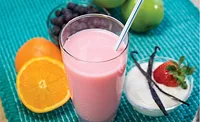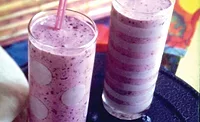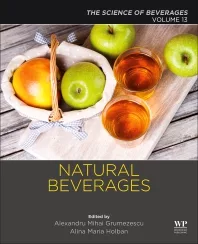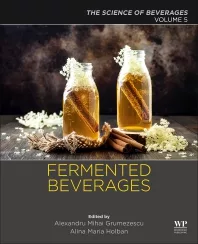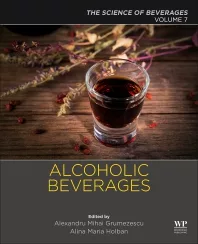Consumer trends continue to prioritize clean label, non-GMO beverages
Beverage manufacturers work to deliver need state through range of solutions

Image courtesy of Naked Brand
In her song “Clean,” popstar Taylor Swift expresses how she feels cleansed after a relationship. “Rain came pouring down / When I was drowning, that’s when I could finally breathe / And by morning / Gone was any trace of you, I think I am finally clean,” she sings in the chorus.
In the beverage landscape, consumers also are looking to feel “cleansed” by opting for clean labels. Experts describe the current consumer interest in clean label/non-GMO beverages.
Jennifer Berndt, associate marketing manager of beverages at Cargill, Minnetonka, MN, says that label-friendly formulation remains a top trend influencing nearly every segment of the food and beverage landscape.
“For some consumers, it represents a desire for more ‘natural’ foods. Others scrutinize labels hoping to make more healthful choices — whether for themselves or the planet,” Berndt explains. “Still, more themes consistently rise to the top. Most universal of these is the idea of products made with familiar (or at least understandable) ingredients. But increasingly, label-friendly perceptions may extend to how those ingredients are sourced, processed and whether they are sustainably sourced.”
She goes on to note that consumers use shortcuts to guide them toward products deemed “clean label,” including non-GMO, organic, natural or free-from artificial sweetener/ingredient claims.
Alice Lee, technical marketing manager for Dallas, NC-based GNT USA, shares that momentum is growing toward more natural and healthy ingredients.
“Modern consumers are becoming more educated about how products are made and they’re paying more attention to nutritional and ingredient labels,” Lee says. “For many of them, the key priority is avoiding artificial colors and other artificial ingredients.”
Linnea Halter, marketing coordinator at Global Organics, Cambridge, MA, notes that the meaning of clean label can have different interpretations. Generally, she says it refers to products that promote healthy eating, contain simple and easy-to-understand ingredients and are free from artificial additives, including colors, flavors and preservatives.
“Initially, the clean label movement emerged from consumers’ desire to eat healthier without harmful chemicals,” Halter states. “However, it has evolved to include environmental responsibility and complete transparency, now referred to as ‘clear label.’”
William Grand, founder and CEO of Naples, FL-based NutriFusion, says that interest in both clean label and non-GMO products is extremely high.
“Non-GMO products have been around for a while, but interest really ramped up during COVID-19,” Grand shares. “Consumers were really focused on clean labels because of health concerns with COVID-19, and people had more time to research what they were buying.”
He adds that this interest continues today.
As for which beverage categories have benefited from this interest, Grant points to probiotic drinks.
“Probiotic drinks can help improve digestion, gut health and immunity,” he explains. “However, the problem with clean labels and non-GMO products in the beverage industry is that manufacturers cannot add nutrients to beverages without using synthetic ingredients.”
Similarly, Thom King, chief innovations officer at Icon Foods, Portland, OR, says that functional carbonated beverages with prebiotic fibers, such as Poppi, Olipop, Mighty Pop and Perfy, have benefited. Beverages containing electrolytes also have reaped the benefits of clean label interest
“Nutrient-dense, high protein, ready-to-drink (RTD) beverages are also growing with the clean label trend,” King notes. “Many are more than 30 grams of protein per serving, with no added sugars, prebiotic fibers, as well as some with greens.”
He suggests that RTD, clean label, protein meal replacement beverages are a big trend that will continue to grow.
Janae Kuc-Langford, marketing manager of beverage and nutrition categories at Ingredion Inc., Westchester, IL, says that, when analyzing beverage subcategories, consumer perception is high for clean ingredients.
Ingredion conducted a beverage category landscape study, which looked at various RTD beverages, including juice/juice drinks, soda, coffee/tea, sports drinks, energy drinks/shots, value-added water, adult nutrition and kombucha products.
“For these combined RTD beverage categories, 29% of consumers polled the prioritized clean ingredients as an important characteristic when selecting an RTD beverage,” Luc-Langford says. “Of these subcategories, hydration-type beverages (a mix of sports drinks and enhanced water products) and juice/juice drinks had the highest ranking regarding the importance of clean ingredients. We had seen popularity in these categories where manufacturers and brands have utilized clean ingredients that provide a function.”
She adds that the sports hydration space has seen market disruptors also take advantage of this aspect.
Global Organics’ Halter echoes similar sentiments, noting that functional, probiotic and sport nutrition beverages have benefited from consumer interest in clean label and non-GMO products. She also says that vitamin juices are another category seeing perks.
“Vitamin juices, which are fortified with vitamins and minerals, have seen a boost in popularity,” Halter states. “Consumers are seeking healthy and natural alternatives to traditional sugary juices, and vitamin juices offer a way to incorporate essential nutrients into their diet without artificial additives.”
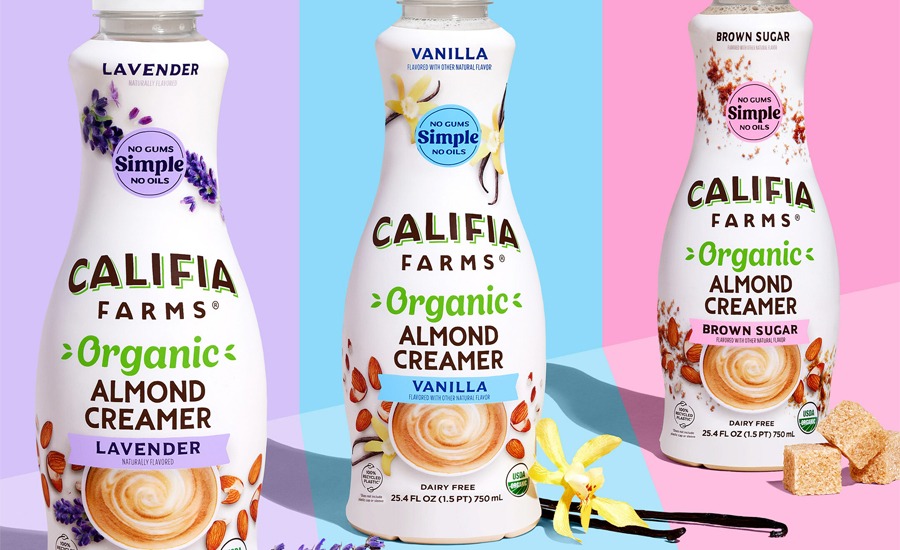
Catering to clean label trends
Beverage-makers can utilize many ways to support demand for clean label through their portfolios.
Icon Foods’ King says that beverage-makers must lean into innovation and “skate where the puck is going” by understanding where the market is headed and get ahead of it.
Similarly, GNT’s Lee notes the way new beverage brands are innovating. She says the pace is fast and they are tapping into the demand for natural, healthy beverages with products like kombuchas, juice shots and coconut water.
“At the same time, though, the clean label trend is also having an impact on categories that were traditionally seen very much as unhealthy and artificial,” she shares. “Mintel research shows that, among U.S. consumers who enjoy carbonated soft drinks (CSDs), 28% say they would be encouraged to buy a new CSD if it had a clean label. There’s also been rise in claims such as no additives/preservatives, GMO-free and organic in CSD launches in North America.”
Lee observes the recent boom in the non-alcohol category, which has expanded upon consumers’ evolving preferences for mindful consumption. This includes many alcohol-free cocktails, beers and wines, as well as low-sugar, RTD mocktails with sweeteners like agave.
Lee suggests that beverage-makers clean up their product labels, because it can have “huge benefits in terms of consumer acceptance.” She also emphasizes the importance of working closely with ingredient suppliers to achieve best results.
“We see true collaboration with suppliers as [the] key to innovation, from working closely on gold standard development and ideation, to delivering optimal functionality and performance,” Lee adds.
Ingredion’s Kuc-Langford says that manufacturers can support demand by formulating or reformulating beverages to shorten ingredient declarations and selecting plant-based ingredients.
“Incorporating non-artificial sweeteners such as stevia can deliver on consumer needs for low sugar and clean labels,” she says.
Another expert also suggests using stevia in formulations.
Benjamin Addington, technical services specialist at Cargill, states that consumers have long been wary of artificial sweeteners, while stevia sweeteners are perceived positively. He notes that formulators may also include fruit juice to boost the label appeal of their beverages.
“Consumers often perceive fruit juice as a more ‘natural’ approach to sweetness, though the final formulation will typically include other sweetening solutions, too,” Addington explains. “Texturants are the other big area of focus, as some brands work to replace less familiar ingredients with more recognizable options.”
He adds that, in many beverage applications, notably acidified dairy, fermented and reduced-sugar drinks, pectin is a great, label-friendly option.
“The emphasis on ‘clean label’ or ‘natural’ ingredients shows no sign of waning,” Addington says. “While ingredient suppliers like Cargill already offer a number of label-friendly solutions, formulators should continue to watch for new entrants, as this remains an area of focus for our R&D program.”
Icon Foods’ King feels that ingredients like stevia and steviol glycosides, particularly Reb M, can support clean label beverage trends due to their neutral flavors.
“These natural sweeteners can often stand on their own as a sweetener in beverages, but they also shine when used with other sweeteners, fibers and katemfe fruit extract, a positive allosteric modulator,” he says.
Like Global Organics’ Halter, King mentions that the definition of clean label can vary depending on who is asked, which can be a point of confusion when it comes to clean label.
“I would consider clean label to mean ingredients that are minimally processed and don’t have a deleterious effect on your health,” he says. “There are many compounds that are ‘naturally occurring’ but are dangerous and not good for you, sugar being one of them.”
Cargill’s Berndt states that clean label demands are not universal. Consumers view some categories, like CSDs, as an indulgence and don’t hold them to the clean label, non-GMO standards like they would for others.
“For other categories, however, clean label ingredients are a cost-of-entry,” she says. “Consumers don’t have the same expectations for carbonated soft drinks as they do for a nutritional supplement beverage. Brands need to recognize those differences, specific to the category and the consumer segment target.”
Berndt adds that not all consumer segments perceive ingredients the same way. Clean label shoppers, she says, are more knowledgeable about ingredients compared with the general population.
“The bottom line: not every product has to be clean label, and not every consumer segment has the same definition of what is and is not acceptable,” Berndt concludes.
NutriFusion’s Grand says that plant-based nutrition is the best way to support clean label beverage trends. He urges manufacturers to use the freshest and highest-quality fruits and vegetables.
“The problem, however, is that the best-tasting products usually require a lot of processed sugar,” Grand notes. “A rule of thumb for consumers would be to check the ingredient label. If they can’t pronounce it, they shouldn’t buy it.”
Likewise, Ingredion’s Kuc-Langford says that consumer awareness or lack thereof surrounding certain ingredients could lead to confusion.
“Many times, we see very long labels on sports drinks or sports nutrition beverages with a large amount of vitamins and minerals added,” she explains. “Consumers may misconstrue these ingredients with not aligning with a clean label due to the length or chemical-sounding name when looking at the label.”
Considerations ahead of formulations
When working with clean label and non-GMO ingredients, experts notes that beverage-makers have a number of factors they must consider.
Cargill’s Addington says that, while consumers are drawn to clean label products, at the end of the day, taste rules.
“If a beverage doesn’t taste great, consumers aren’t going to buy it,” he states. “Many of the trendy functional ingredients that are being added to today’s beverages bring their own flavors to the party. Things like vitamins, minerals and botanicals may label cleanly, but they may not taste very clean.”
GNT’s Lee suggests that beverage manufacturers might need to educate consumers about clean label ingredients. This could come in the form of telling simple and engaging stories on product packaging or websites about how ingredients are made, she says.
“In some cases, consumers might not have any awareness of an ingredient that should otherwise be considered clean label,” Lee explains. “For example, we use spirulina to create vibrant blue beverages. Spirulina is becoming increasingly popular as a natural superfood, but someone buying a blue CSD might not be aware of it.”
She says this provides the manufacturer with an opportunity to emphasize the origin of the blue color and elevate spirulina into both a talking point and a selling point.
When it comes to clean label and non-GMO ingredients, it’s clear that consumer education remains a top priority.
Looking for a reprint of this article?
From high-res PDFs to custom plaques, order your copy today!





